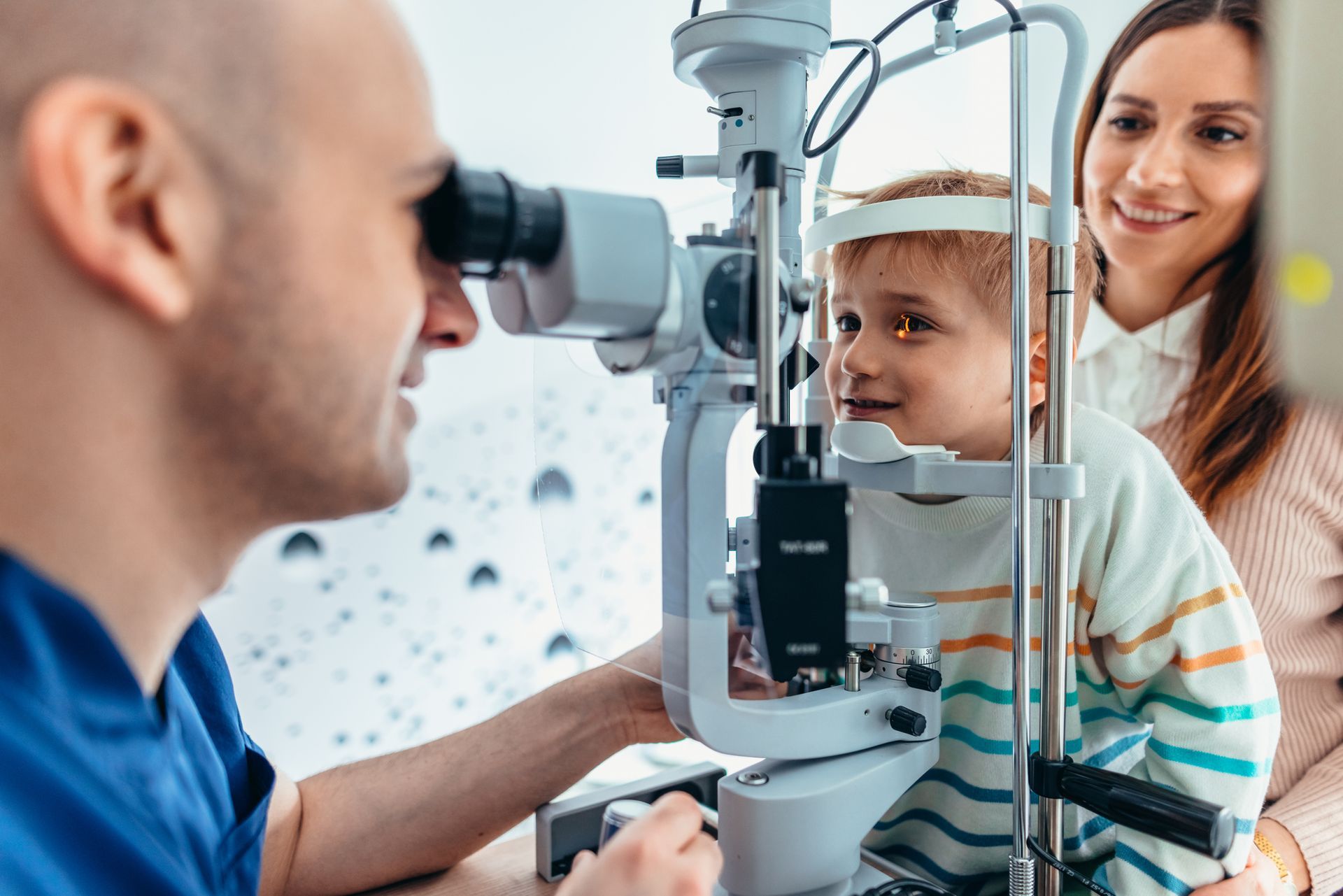When Should You Schedule an Eye Exam?
July 17, 2017

Your eye health and vision acuity affect your day-to-day physical comfort and your safety while commuting or traveling. You may understand the importance of regular eye exams but feel unsure about how often you should have them.
Multiple factors determine how often you as an individual need to schedule an eye exam. Find out the most common factors that can let you know when an exam is needed.
Age
Many eye health issues occur gradually over time and may not be obvious to the affected individual, especially when that individual is a child. Because eye health conditions can be difficult to detect on your own, schedule age-based exams throughout your life.
Generally, eye health care providers recommend that adults receive exams at the following age-based intervals:
• 18 to 60 years of age—Every other year
• 60 years of age and older—Every year
• 60 years of age and older—Every year
If you are a parent, plan to take your child in for exams within the recommended age time frame. Children should receive their first eye exam at no later than age five, but eye doctors also recommend that parents comply with the following guidelines:
- Birth to 2 years of age—Once at approximately 6 months of age
- 2 to 5 years of age—Once at approximately 3 years of age
- 6 to 18 years of age—Once before beginning elementary school and every two years after reaching school age
These general guidelines apply to individuals who are not at high risk of eye health problems and who do not currently use vision correction. Your individual risk factors can shorten the intervals between exams.
Individual Risk
For at-risk individuals, eye health problems and vision changes occur more rapidly. Some of these changes can be prevented or slowed with proper medical care.
If you are at a higher risk of eye health issues, you should schedule an eye exam annually or as frequently as recommended by your eye health care provider. Risk factors for future eye health conditions include:
- Certain infections during pregnancy like rubella
- Childhood eye health conditions like lazy eye
- Developmental delays
- Diabetes
- Eye strain in your work environment
- Family history of serious eye health conditions like macular degeneration
- High blood pressure
- Low birth weight
- Past eye surgery
- Past eye trauma
- Premature birth
- Use of medication that can cause side effects affecting the eyes, including prescription, over-the-counter and controlled substances
Your risk of vision and eye-related issues may change over the years, so always check with your primary care physician and eye health care provider when you experience a change in your health that may necessitate more frequent eye exams.
Symptoms
In addition to routine exams, schedule an emergency exam whenever you experience abnormal eye-related symptoms. Your symptoms could include:
- Blurred vision
- Difficulty seeing at night
- Dizziness, nausea, or headaches, especially after focusing your sight on an object
- Light sensitivity
- Physical discomfort such as itchiness
If you experience these issues along with other serious medical symptoms, like high fever or confusion after a head injury, seek emergency medical care immediately. If the symptoms come and go or appear slowly over time, your first stop should be an eye doctor.
Keep these factors in mind when deciding on the date of your next eye exam. If you have questions about how any of these factors apply to you or to a child you are responsible for, consult with your eye health care provider.
Think it is time for you or your child to have an eye exam? Schedule an appointment with the expert team at Fraser Optical. We work with patients of all ages to provide excellent eye health care and vision correction.
Recent Posts
January 29, 2020
Learn how to prevent and manage pink eye with Fraser Optical’s expert tips. Keep your eyes healthy with these practical, easy-to-follow guidelines.









